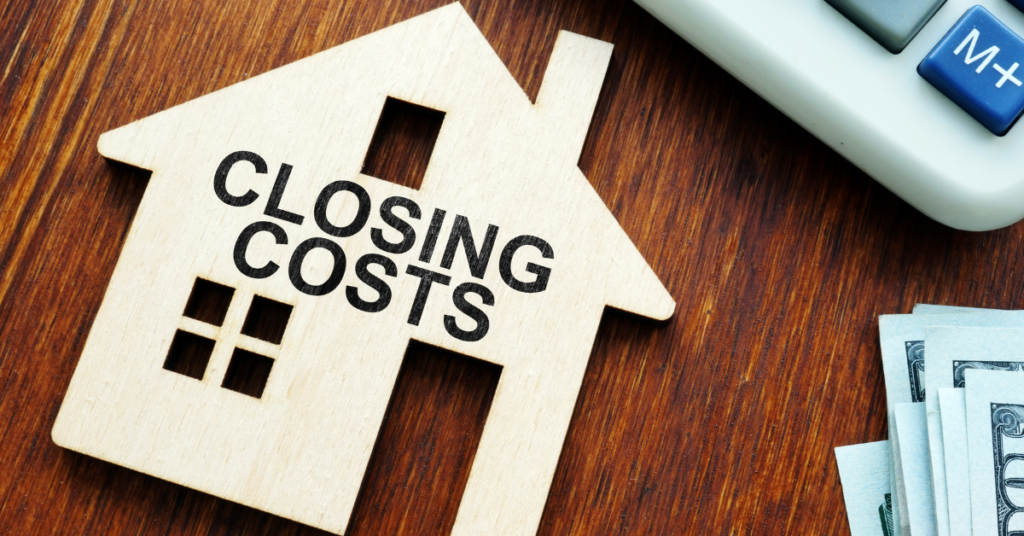Getting caught up in the excitement of finding your dream house is easy when purchasing a home. But before you start planning where to place furniture and decor, it’s important to understand all the costs involved with homeownership – including closing costs. These are expenses that must be paid at the end of your homebuying process, often on top of your down payment and mortgage payments. In this article, we’ll explain what exactly closing costs entail and how much you should expect to budget for them. As with any major purchase, being informed about all associated fees will help ensure that you’re financially prepared to buy a new home.
Understanding Closing Costs: A Breakdown of Expenses
Closing costs can often surprise first-time homebuyers, but it’s important to understand what they are and how much you should be budgeting for. Closing costs refer to the expenses that must be paid at the end of your homebuying process, on top of your down payment and mortgage payments. These fees typically cover various services such as title searches, appraisals, legal work, property surveys, and taxes.
The amount you’ll need to pay in closing costs will depend on factors like your loan type, location, or lender policies. However, experts suggest budgeting around 2-5% of the purchase price for typical closing costs. It’s also worth noting that some buyers may be able to negotiate with their lenders or have certain fees waived altogether. Understanding these details about closing costs can help ensure a smoother purchasing process and allow you to plan accordingly for all associated expenses with homeownership.
How to Estimate Your Closing Costs: A Step-by-Step Guide
If you’re planning to purchase a home, it’s essential to understand the breakdown of your closing costs. These costs can be significant and typically include expenses such as loan origination fees, appraisal fees, and title insurance. One way to estimate these expenses is by using a Closing Disclosure form provided by your lender; this document outlines all the costs associated with getting a mortgage.
To determine your potential closing costs accurately, start by reviewing the list of items that comprise this expense category. It’s also wise to speak with your real estate agent or lender about any specific requirements for these types of transactions in your state or region.
Once you understand what is included in closing costs and how they are calculated, be sure to budget accordingly – aim for somewhere between 2-5% of the overall price of your new home. By taking the time to research and prepare ahead for expected expenses like these, you can help ensure that you stay on track financially throughout the entire purchasing process.
Common Closing Costs to Expect When Buying a Home
Closing costs are expenses that must be paid at the end of the home-buying process. In addition to your down payment and mortgage payments, closing costs can add up quickly. While they vary by state and lender, some common closing costs include appraisal fees, title insurance fees, attorney fees, recording fees, credit report charges, and loan origination fees.
Appraisal fees cover the cost of evaluating the property’s value based on current market conditions. Title insurance protects you against any claims or liens against your property that may arise in the future. Attorney fees may apply if a lawyer is needed to review legal documents related to buying a home. Recording fees refer to any county clerk or recorder office charges necessary for recording legal paperwork related to your purchase. Credit reports will also incur an additional charge while obtaining your mortgage loan approval before purchasing a house.
Overall, it’s crucial to understand all expenses associated with homeownership – including closing costs – when planning how much house you can afford. Knowing what kind of financial preparation is necessary ahead of time can make the experience much smoother and enjoyable for everyone involved in such cases (buyer/lender/agent).
Tips for Negotiating and Reducing Your Closing Costs
Negotiating and reducing your closing costs can save you considerable money when buying a home. One effective way to lower these expenses is by shopping for different service providers, such as title companies or lenders offering better rates. Requesting quotes from multiple sources and comparing their fees before committing to one is crucial.
Another tip for reducing your closing costs is negotiating with the seller-enterprise about paying some or all of the associated expenses as part of the purchasing contract. The seller-enterprise may agree to pay specific fees if they want to close the deal quickly, especially in a buyer’s market. However, remember that it’s not always feasible, so be prepared with an alternative plan.
Remember that preparation is key when it comes to negotiating and lowering closing costs. Doing thorough research beforehand, comparing rates from different sources, and having backup plans will help ensure success while ensuring you don’t overspend on unnecessary expenses associated with homeownership.

